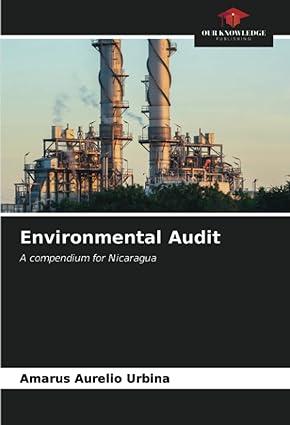Question
QUESTION THREE Indimanje Engineering Company produces electrical accessories like meters, transformers, switchgears and automobile accessories like taximeters and speedometesh. Indimanje buys the electrical components but
QUESTION THREE Indimanje Engineering Company produces electrical accessories like meters, transformers, switchgears and automobile accessories like taximeters and speedometesh. Indimanje buys the electrical components but manufactures all mechanical parts within its factory which is divided into four production departments. Machining, Fabrication. Assembly and Painting and three services departments - Stores, Maintenance, and Works Office. Though the company prepared annual budgets and monthly financial statements, it had no formal cost accounting system. Prices were fixed on the basis of what the market can bear. Inventory of finished stocks was valued at 90 percent of the market price assuming a profit margin of 10 percent. In March the company received a trial order from a government department for a sample transformer on cost-plus-fixed-fee basis. They took up the job (numbered by the company as Job No.879) in early April and completed all manufacturing operator before the end of the month. Since Job No. 879 was very different from the type of transformers they had manufactured in the past. The company did not have a comparable market price for the product. The purchasing officer of the government department asked the company to submit a detailed cost sheet for the job giving as much details as possible regarding material labour and overhead costs. Indimanje, as part of its routine financial accounting system had collected the actual expenses for the month of April, by 5th of May. Some of the relevant data are given in Exhibit I. The company tried to assign directly, as many expenses as possible to the production departments. However, it was not possible in all cases. In many cases an overhead cost, which was common to all departments had to be allocated to the various departments using some rational basis. Some of the possible bases were collected by company's accountant. These are presented in exhibit II. He also designed a format to allocate the overhead to all the production and service departments. It was realized that the expenses of the service departments on some rational basis. The accountant thought of distributing the service departments costs on the following basis. a. Works office costs on the basis of direct labour housh. b. Maintenance costs on the basis of book value of plant and machinery. c. Stores department costs on the basis of direct and indirect materials used. The accountant, who had to visit the company's banker, passed on the papers to you for the required analysis and cost computations. Required Based on the data given in Exhibits I and II below: (a) Calculate the overhead cost (per direct labour hour for each of the four prosing departments. This should include share of the service departments costs. (5 marks) (b) Do you agree with: (i) The procedure adopted by the company for the distribution of overhead costs? Explain (4 marks) (ii) The choice of the base of overhead absorption, i.e. labour hour rate? Explain (3 marks) (c) Job No. 879 was expected to be cleared by the Inspection Department in the first week of May. The actual materials cost applicable to Job NO.879 was Rs 4879~. Labour time spent on the job was estimated to be 50 hours in Machining: 10 hours in Fabrication and 20 hours each in Assembly and Painting Department, total Sh. 460.10 Calculated the total cost of this 3 job including overhead costs. (8 marks) (d) If a Job No. 879 is a cost-plus-fixed fees (CPFF) contract with the government. Fixed fee being Sh. 200 what would be the total charges recoverable from the client? (5 marks) (e) Evaluate the cost accounting system adopted by the accountant and suggest improvement, if any, in it. (5 marks) Exhibits I Indimanje Engineering Company Actual Expenses (Manufacturing Overhead) for April Indirect Labour and Supervisions: Machining 33,000 - Fabrication 22,000 - Assembly 11,000 - Painting 7,000 - Stores 44,000 - Maintenance 32,700 149,000 Indirect material & supplies Machining 2,200 - Fabrication 1,100 - Assembly 3,300 - Painting 3,400 - Maintenance 2,800 12,800 Others Factory rent 2,400 - Depreciation of plant & machinery 19,494 - Building rates and taxes (2% of direct labour costs) - - Power (maintenance sh.366; Works 2,220 balance to production) 68,586 - Works office salary expenses 130260 - Miscellaneous stores 1190 433,930 Exhibits II Indimanje Engineering Company Projected Operation Data for the Year Department Area (sq. m) Original book value of plant & machinery Direct materials budget Horse power rating Direct labour hours Direct labour budget Machining 13,000 2,640,000 6,240,000 20,000 1,440,000 5,280,000 Fabrication 11,000 1,320,000 2,160,000 10,000 528,000 2,640,000 Assembly 8,800 660,000 - 1,000 720,000 1,320,000 Painting 6,400 264,000 1,080,000 2,000 330,000 660,000 Stores 4,400 132,000 Maintenances 2,200 198,000 Works Office 2,200 66,000 Total 48,000 5,280,000 9,480,000 33,000 3,018,000 9,900,000
Step by Step Solution
There are 3 Steps involved in it
Step: 1

Get Instant Access to Expert-Tailored Solutions
See step-by-step solutions with expert insights and AI powered tools for academic success
Step: 2

Step: 3

Ace Your Homework with AI
Get the answers you need in no time with our AI-driven, step-by-step assistance
Get Started


